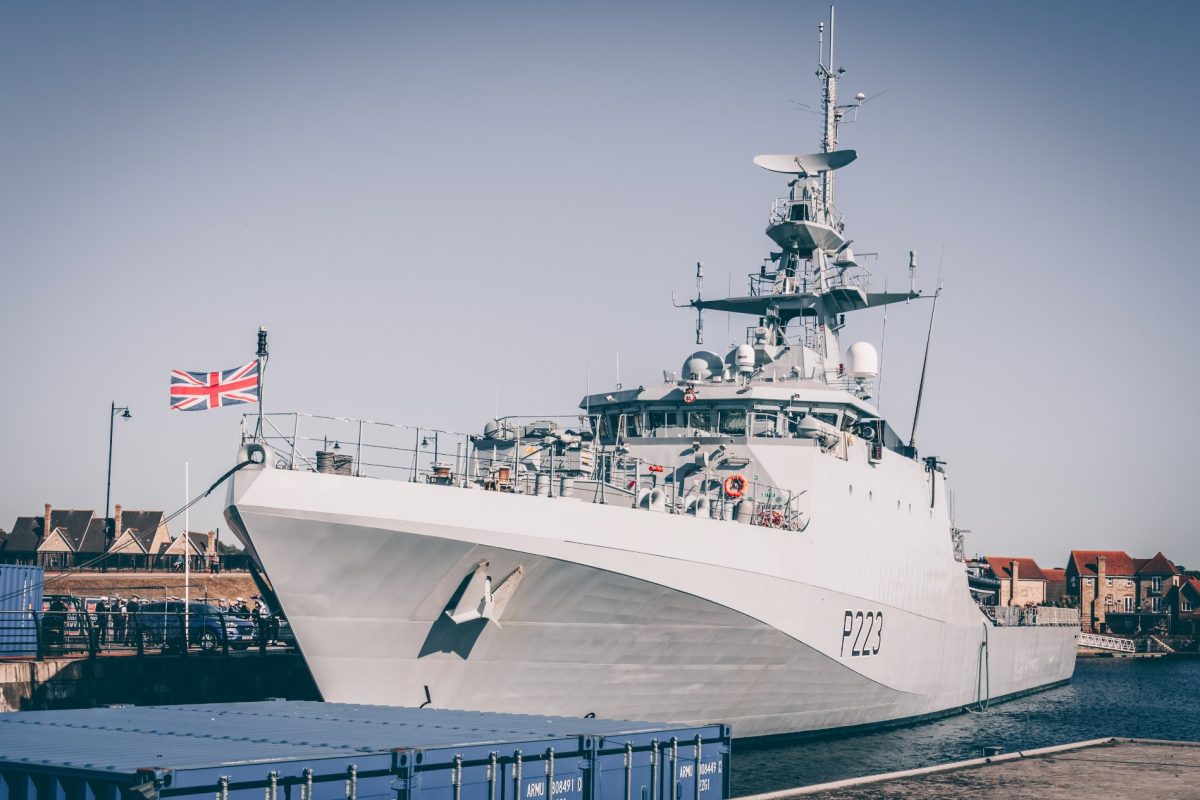The marine industry offers a wide variety of career opportunities, from fishing to shipping, and everything in between. In the United States alone, there are over 700,000 people employed in the marine industry.
Although some people may be deterred by their colorblindness from pursuing a career in marine jobs, there are many options available for those who have trouble distinguishing between certain colors.
While most jobs in this industry require excellent vision and good color recognition skills, there are still many options available for those who are color blind or suffer from color vision deficiency (CVD). If you want to learn more about your options after high school and what types of careers might be right for you, read on!
Can you be colorblind in the Marines

Yes, but it depends on how severe your color vision deficiency is. The United States Marine Corps requires that all of its recruits pass a color vision screening test. If you fail this test, then you will not be allowed to enter into boot camp or any other training program with the Marines.
There are several types of color blindness that could affect your ability to join the Marine Corps:
Protanopia is when someone can only see red and green colors. This type of deficiency is relatively rare, but it may affect up to 6% of Caucasian men.
Deuteranopia is when someone can only see green and blue colors. This type of deficiency affects about 1% of Caucasians and about 0.5% of Asians.
Tritanopia is when someone can only see blue tones and yellow tones are not visible at all. People who suffer from this type of color vision deficiency don’t usually have a problem seeing oranges or yellows, but they do have trouble distinguishing between reds, greens, browns and blues.
Dichromacy (also known as dichromatic vision disorder) is when someone has one working cone type in each eye that works together with rods (pigment cells that sense light) to help people see. If only one cone type works in each eye, they can only see one color at a time and have trouble distinguishing between reds and greens or blues.
If your vision is not impaired, you can enlist and serve in any military occupational specialty (MOS), including those that require the ability to see colors. However, if your vision is impaired and you have red-green colorblindness or some other form of color vision deficiency, you’ll need to apply for an exception to policy.
Marine Job for Colorblind Roles

If you are colorblind, you may think that your career options are limited. But the truth is that you can still pursue a wide variety of careers in the marine field.
Here are some marine roles that might be right for you if you have red-green colorblindness:
Fishing: Fishing requires keen observation skills and an attention to detail. The ability to spot subtle changes in the water makes catching fish easier and safer for everyone involved. Colorblind people can easily identify bait fish or other sea creatures from afar because they have an increased sensitivity to color variations.
Surfing: Surfers need quick reflexes and good hand-eye coordination. They also need good balance since they’re often standing on their boards in the middle of moving water. Colorblind people have an enhanced ability to see depth and distance, which helps them avoid dangerous riptides or rocks as they paddle out into the ocean.
Sailing: Sailors need excellent communication skills as well as an understanding of weather patterns, tides and currents — all things that colorblind people excel at! They also need strong problem-solving abilities because sailing is always changing due to wind strength and direction, currents and waves.
Swimming: Swimmers need to be able to see underwater, which is why colorblind people are often great swimmers! They can see through murky water better than people who aren’t colorblind.
20 Best jobs in marine for colorblindness

- Personnel Clerk (0151): Personnel clerks handle administrative tasks, such as maintaining records and processing personnel actions, which do not require color vision.
- Motor Vehicle Operator (3531): Motor vehicle operators drive and maintain military vehicles and equipment, focusing on safe navigation rather than color discrimination.
- Supply Administration and Operations Specialist (3043): Specialists manage inventory and supplies, involving paperwork and logistics that do not heavily rely on color perception.
- Field Radio Operator (0621): Field radio operators maintain and operate communication equipment, primarily relying on auditory and technical skills rather than color vision.
- Food Service Specialist (3381): Food service specialists prepare and serve meals, focusing on culinary skills and food safety rather than color discrimination.
- Marine Corps Community Services (MCCS) Specialist (1141): MCCS specialists work in various recreational and support roles, where color vision is not typically a critical factor.
- Combat Engineer (1371): Combat engineers perform construction and demolition tasks, and while color vision is useful, it may not be essential for some aspects of their work.
- Utilities Chief (1171): Utilities chiefs oversee utility systems, including water and wastewater management, which can be managed using technical knowledge and readings rather than color vision.
- Finance Technician (3451): Finance technicians handle financial transactions and record-keeping, focusing on numerical accuracy rather than color perception.
- Marine Corps Security Force Guard (8152): Security force guards provide security for sensitive installations and assets, focusing on vigilance and response skills.
- Postal Clerk (0161): Postal clerks handle mail sorting and distribution, which is based on addresses and postal codes rather than color.
- Field Artillery Fire Control Marine (0844): These Marines operate fire control equipment for artillery units, with tasks primarily based on technical knowledge.
- Ammunition Technician (2311): Ammunition technicians handle and manage ammunition and explosives, where safety procedures and labels are more critical than color perception.
- Information Technology Specialist (2651): IT specialists manage computer systems and networks, relying on technical expertise rather than color vision.
- Bulk Fuel Specialist (1391): Bulk fuel specialists handle fuel storage and distribution, focusing on safety and technical knowledge.
- Aircraft Rescue and Firefighting (ARFF) Specialist (7051): ARFF specialists respond to aircraft emergencies, where the ability to quickly and safely extinguish fires is paramount.
- Marine Corps Martial Arts Instructor (0916): These instructors teach martial arts techniques and do not require color vision for their duties.
- Water Support Technician (1341): Water support technicians manage water purification and distribution systems, relying on technical knowledge.
- Transportation Management Specialist (0431): Specialists coordinate transportation and logistics, with an emphasis on coordination rather than color perception.
- Aviation Operations Specialist (7041): These specialists assist with aircraft operations, focusing on communication and coordination rather than color vision.
Tools and Resources for Colorblind Marine Professionals
Marine Equipment Maintenance Technicians
An equipment maintenance technician’s job is to keep all the equipment in working order. This includes boats, engines and other mechanical parts of a boat. They will often work on older boats that need repairs more often than newer ones do.
Depending on what type of boat they work on, they may not need as much color vision as someone who works on newer models with more electronics that need repair. Tools like magnifiers, flashlights and magnifying glasses can all help improve your vision for this type of job. You may want to consider getting corrective lenses before applying for this type of job though because it can be difficult work if you don’t have 20/20 vision already, since you need to be able to see small details clearly.
Colorblind Glasses and Contacts
If you have trouble distinguishing between different colors, or if you have difficulty seeing reds or greens, there are options available to help. Colorblind glasses are specially tinted lenses that can be used in place of regular glasses or contact lenses. While they won’t cure your color blindness entirely, they will allow you to distinguish between colors more easily so that you don’t miss important details during an examination or experiment.
Covisn colorblind contact lenses are designed to help people pass their Ishihara test by providing them with clearer vision of the images used in the test. These contacts provide 100% clarity that allows you to see every detail clearly without being distracted by any kind of color confusion.
And that means that when you get into the military and take your Ishihara test for real (not just for practice), you’ll have no problem passing it—and getting the job you want!

There are also colorblind contact lenses available for people who want to correct their color vision without having to wear glasses all day long. These contacts work by filtering out certain wavelengths of light so that your eye sees everything as it should be seen — even if there is still some degree of color blindness involved.
Frequently Asked Question:
Can you be colorblind in the Marine Corps?
Yes, colorblind individuals can join the Marine Corps. However, color blindness may limit eligibility for certain military occupational specialties.
Why is color blindness not allowed in Marine?
Color blindness is not entirely forbidden in the Marines. But it may restrict you from certain roles. This is because some tasks require the ability to identify specific colors accurately for safety and effectiveness.
Do they test for color blindness at MEPS?
Yes, color blindness is one of the things tested during the Medical Examination at the Military Entrance Processing Station (MEPS).
Can you be a Marine if you are colorblind?
Yes, being colorblind does not disqualify you from being a Marine. It might affect the jobs you can apply for within the Marine Corps.
Last Thought
Marine jobs are available to people with all kinds of different backgrounds, skills and experiences. If you’re a colorblind individual who wants to pursue a career in marine, there are many opportunities available to you.
Whatever your passion or interest in life is, there will likely be a place for it in the world of marine jobs.
The possibilities for colorblind job seekers in marine careers are endless—the only thing holding them back is their own self-imposed limitations on what they believe they’re capable of doing!

